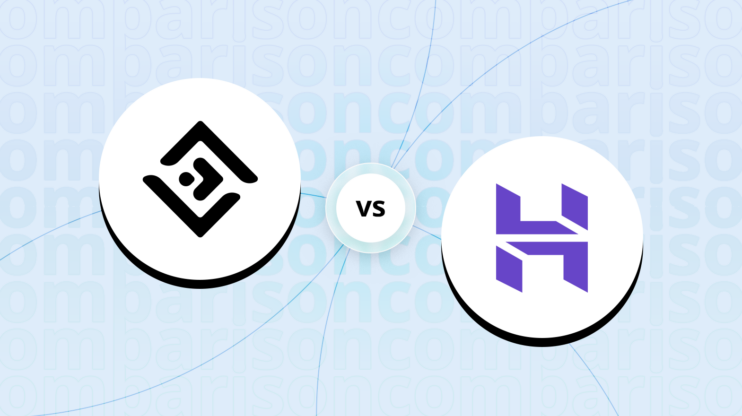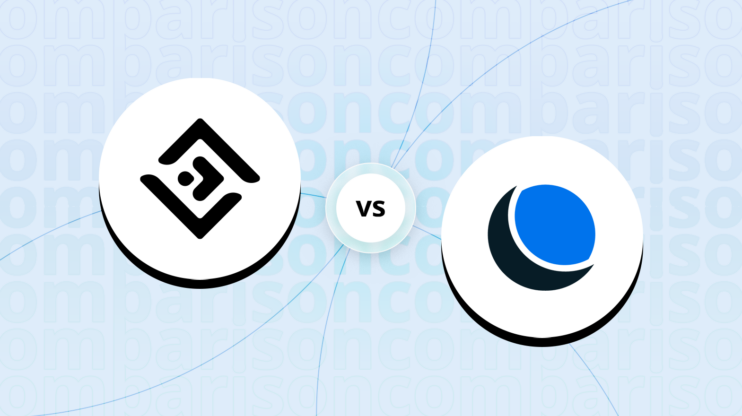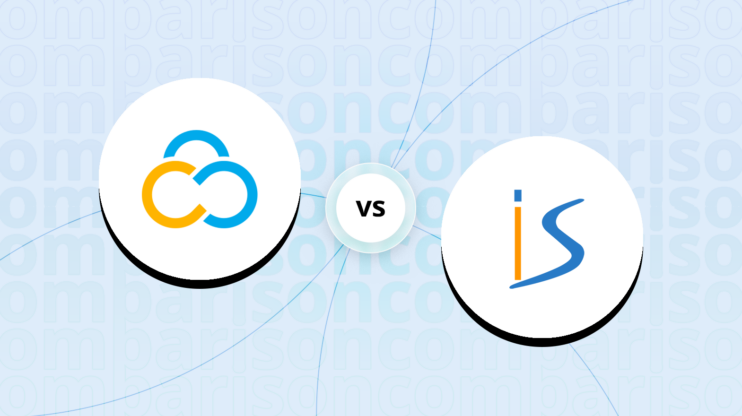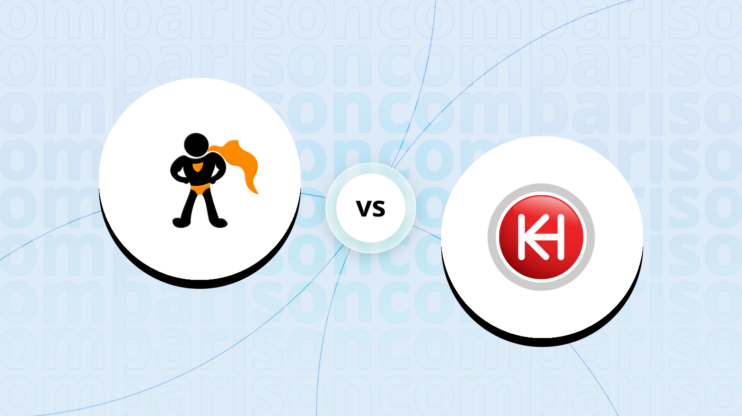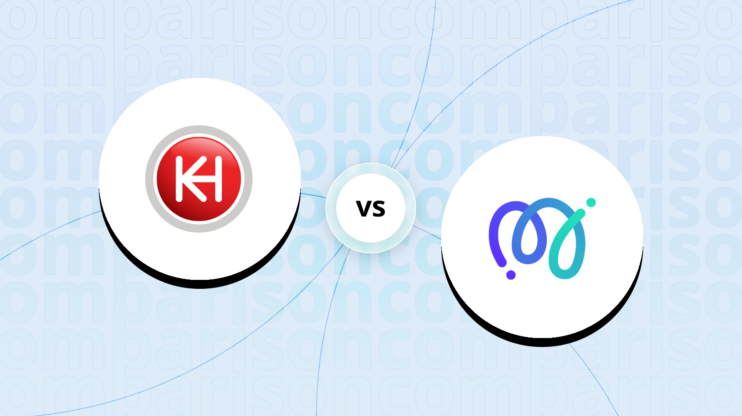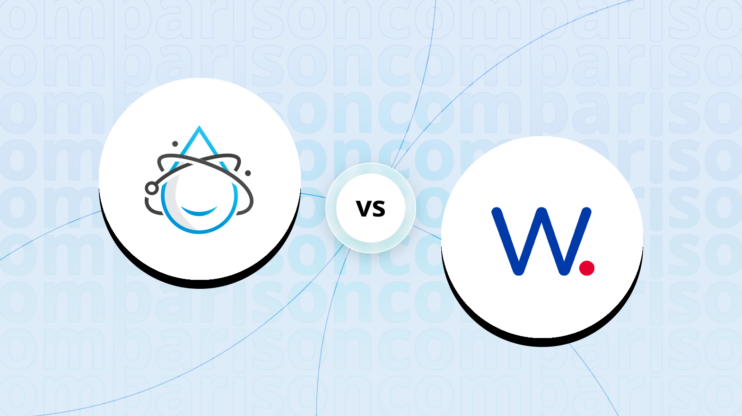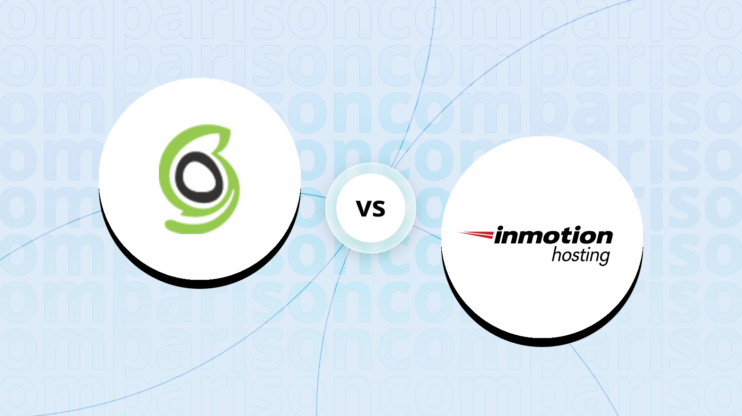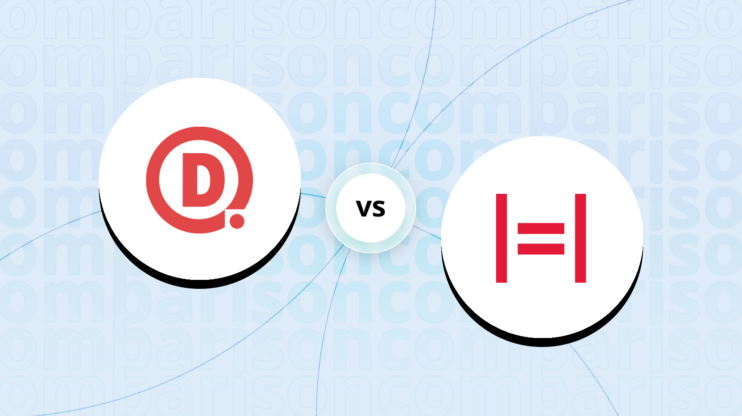Final verdict
Looking over Hostinger vs. DreamHost, both services offer solid performance and a variety of hosting plans, but one edges out in several key areas.
-
Hostinger (Overall grade: 8.7)
provides excellent uptime and page load speeds, making it a strong contender for websites needing consistent and high-level performance. Hostinger boasts a 99.9% uptime guarantee but often exceeds this with real-world figures closer to 99.97%. Its global CDN and NVMe storage drive faster website speeds, while features like a free domain and SSL, along with scalable cloud hosting options, make it an attractive choice for a wide range of users. However, it lacks dedicated hosting options, which can be a drawback for enterprise-level needs. Security is another strong point, as Hostinger includes advanced malware protection and 24/7 monitoring, ensuring robust system integrity.
-
DreamHost (Overall grade: 8.2)
offers reliable performance and a solid set of features, making it especially appealing for high-traffic websites and users that need dedicated server options. While DreamHost guarantees 100% uptime, long-term data shows variability, resulting in an average uptime of about 99.83%. DreamHost excels in VPS and dedicated hosting, providing scalable solutions with strong security features, although its shared hosting plans might come across as pricier. The custom control panel is user-friendly but may require a steeper learning curve compared to Hostinger’s hPanel. DreamHost also offers extensive support through live chat and a comprehensive knowledge base, although the lack of phone support and slower response times for certain issues can be limiting.
 Overall grade:8.7 |
 Overall grade:8.2 |
|
|---|---|---|
| Uptime and Availability | 9.2 | 8.5 |
| Hosting Performance | 9.0 | 7.8 |
| Hosting Security | 8.4 | 7.8 |
| Price | 8.8 | 8.2 |
| Hosting Features | 8.3 | 7.9 |
| Ease Of Setup | 9.0 | 8.9 |
| User Management | 8.2 | 8.1 |
| Customer Support | 8.3 | 8.3 |
| User feedback | 4.4/5 | 4/5 |
Hosting types offered
Both platforms provide a variety of hosting types, each designed to meet the different needs of users.
 |
 |
|
|---|---|---|
| Shared hosting | ||
| Cloud hosting | ||
| WordPress hosting | ||
| Ecommerce hosting | ||
| VPS hosting | ||
| Dedicated hosting |
Although both offer a variety of hosting plans tailored to different needs, in
certain cases, one platform may prove to be more suitable.
Detailed comparison
Uptime and availability
Evaluates the average uptime statistics, uptime guarantee and overall availability of the hosting
provider
Score Components:
- Uptime percentage (30%): evaluates the uptime statistics in given period of time
- Uptime guarantee (20%): Assesses if the platform offers an uptime guarantee and
whether the actual uptime matches the promised guarantee. - General performance (25%): Evaluates how fast is the average response time and overall
it’s stability. - Responsiveness (10%): Adaptability to different devices and screen sizes.
- Availability (25%): Reflects the total downtime and number of outages.
 9.2
9.2
 8.5
8.5
🏆 Winner Hostinger: A hosting provider known for its exceptional performance and reliability.
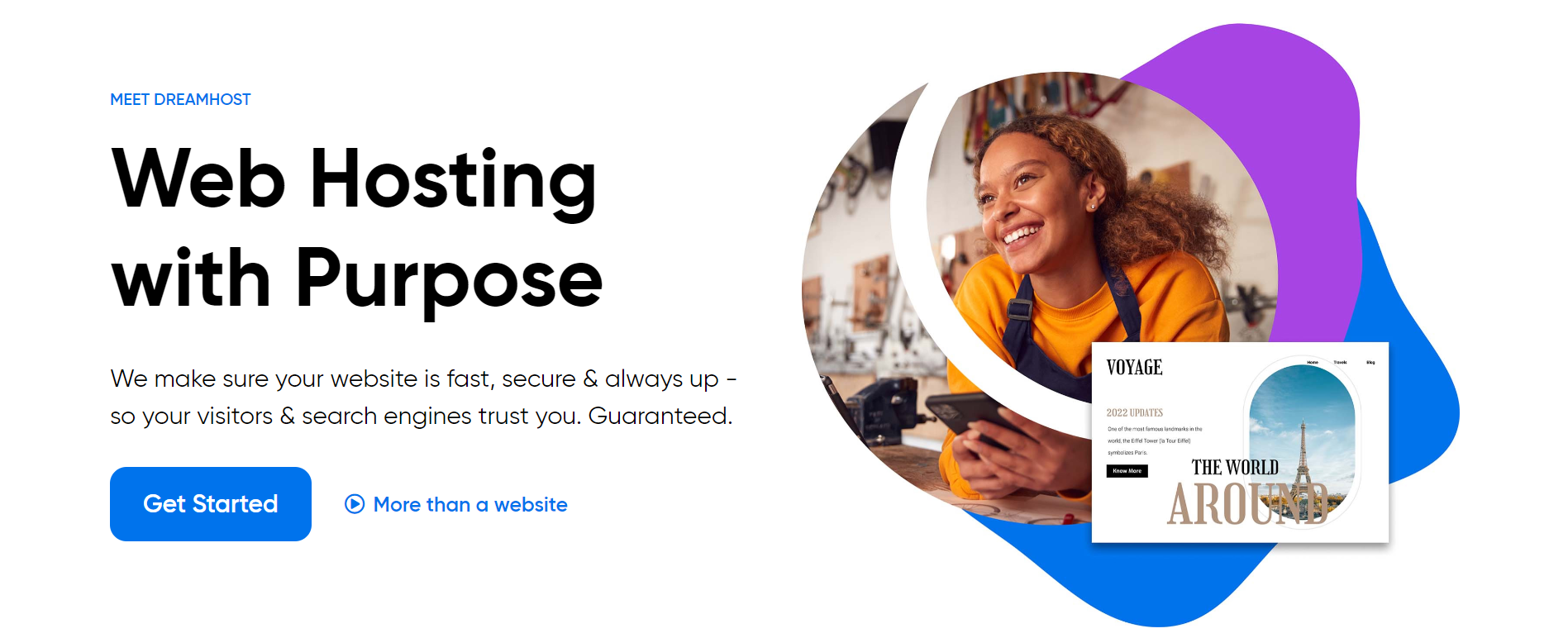
Hostinger offers a strong uptime guarantee of 99.9%, with an impressive average uptime of 99.97% over the last six months. Their performance included a perfect 100% uptime record over a 10-week test and an average response time ranging from 450ms to 625ms. Enhanced DDoS protection, a web application firewall, and Cloudflare protected nameservers help ensure the stability and security of your website.

DreamHost, though with a 100% uptime guarantee, had varying performance results. While some tests showed an impeccable uptime, others recorded a lower 99.83% over 12 months. Their average response times were steady and sometimes quicker than Hostinger’s, but the occasional downtime and response time fluctuations could be a concern. Their stress tests demonstrated reliability under load, making them a solid yet slightly less consistent choice.
Hosting performance
Score Components:
- Hosting speed (30%): This includes SSD quality, Load times, PageSpeed score ranges,
additional information on website speed, built-in plugins for performance enhancement, available caching
methods, and CPU/RAM options - CDN (20%): Considers whether CDN is available or not, whether it’s free or paid, and
the quality of the CDN service - Available data centers (30%): Evaluates the number of data centers and their locations
globally. - Scalibility (20%): Looks at whether elastic scaling is available, the process required
to scale (manual upgrade vs. automatic scaling), the presence of dedicated servers, and the costs
associated with scaling.
 9.0
9.0
 7.8
7.8
🏆 Winner: Hostinger: Ensures high-speed performance with exceptional uptime and extensive security features.
When it comes to general performance, Hostinger impresses with its high-speed NVMe storage, 99.9% uptime guarantee, and LiteSpeed Web Servers paired with the LSCWP cache plugin. Hostinger also includes HTTP/3 and IPv6 for faster data transfer. Its global CDN enhances loading times with code minification and automatic image optimization. Data centers are strategically located worldwide, including Europe, Asia, North America, and South America. In contrast, DreamHost offers high-performance cloud services, NGINX hosting, and SSD storage. DreamHost’s server-level caching is built-in, while both provide HTTP/2 and free CDN services with similar data center footprints.
Website speed
Hostinger delivers impressive page load speeds thanks to high-speed CPUs, ample RAM, and LiteSpeed Web Servers. Their CDN improves website speed by up to 40%. On the other hand, DreamHost offers fast performance with NGINX hosting and built-in caching, achieving efficient memory usage and faster data processing. However, Hostinger’s 4x speed enhancement and comprehensive set of performance boosters give it the edge in this category.
Scalability
Hostinger offers elastic scalability with both automatic and manual upgrade options, making it easy to handle traffic spikes and growth. While Hostinger does not specify dedicated server options, it provides ample resources with their cloud plans starting at $9.99/month. DreamHost offers more traditional scaling methods, requiring plan upgrades to accommodate growth. They provide dedicated servers starting at $199/month and allow for expandable RAM and storage, but details on automatic scaling are not specified.
Hosting security
and regulatory requirements
Score Components:
- Technical security measures (40%): This includes encryption, firewalls, DDoS
protection, secure configurations, server monitoring, access control and availability of security addons
(e.g Sitelock security). - Operational security measures (30%): Encompasses data privacy, backups and data
redundancy. - Compliance and certifications (20%): Adherence to legal and regulatory requirements
(e.g., GDPR, HIPAA) and possession of certifications (e.g., ISO 27001, SOC 2). - Business and reliability (10%): Factors in the provider’s reputation, uptime
guarantees, and customer support.
 8.4
8.4
 7.8
7.8
🏆 Winner Hostinger: A hosting service that excels with comprehensive security measures and a higher level of customer satisfaction.
Both Hostinger and DreamHost, have notable differences in their approaches to technical and operational
security, as well as in their compliance with regulations.
Technical security measures:
Hostinger implements robust technical security measures including 24/7 server monitoring, advanced security modules like mod_security, and Cloudflare protected nameservers. It offers extensive malware protection with both anti-malware endpoints and a malware scanner. Hostinger significantly emphasizes server and infrastructure protection with continuous vulnerability scans and penetration testing. DreamHost provides essential security features like mod_security and DreamShield for malware scanning, with reliable DDoS protection and SSH access, but falls short in comparison to Hostinger’s more comprehensive approach. Hostinger’s advanced security setups and continuous monitoring offer a more fortified environment.
Operational security measures:
Hostinger has an internal security team dedicated to maintaining and improving security, and it uses OWASP secure coding practices. Hostinger supports two-factor authentication (2FA) across applicable systems and recommends strong passwords and regular device scans for users. DreamHost also offers multi-factor authentication (MFA), and handles software updates automatically, ensuring the latest security patches are applied. Hostinger’s 24/7 customer support and the Hostinger Data Processing Addendum (DPA) for data processing and security add operational reliability. Both providers offer strong operational measures but Hostinger’s internal team and comprehensive recommendations give it an edge.
Compliance and certifications:
Both hosting providers comply with GDPR but neither is HIPAA compliant, which may be a critical factor for businesses in healthcare. Hostinger is GDPR compliant and provides free SSL certificates with automatic renewal, though it does not offer PCI or HIPAA compliance out-of-the-box. DreamHost aligns with GDPR regulations globally and offers third-party professionally-signed SSL certificates. DreamHost meets PCI compliance for its own servers, requiring users to achieve compliance for their sites independently. Neither Hostinger nor DreamHost are HIPAA compliant, limiting their appeal for medical-related hosting.
 |
 |
|
|---|---|---|
SSL certificate |
Free, automatic renewal |
Free, not wildcard |
Additional security features |
Malware scanner, DDoS |
DreamShield, SSH, SFTP |
PHP versions |
User-controlled |
Supported, includes OPcache |
GDPR compliance |
Yes |
Yes |
HIPAA compliance |
Not specified |
Not HIPAA compliant |
PCI compliance |
Not specified |
PCI compliant for its own sites |
Hosting features
Score Components:
- Domains (20%): Assesses the availability of a free domain, domain purchase options, and
pricing - Email (15%): Considers if the provider offers full email hosting, or is reselling
third-party service, and if the email is only transactional or not - Website builder (15%): Checks if website builder is available, and it’s user
friendliness and overall the level of customization allowed. - Staging environment (20%): Determines if a staging environment is available, allowing
for testing changes before going live. - FTP & SFTP accounts (10%): Evaluates if and how easily users can access FTP and
SFTP accounts - Git and SSH access (20%): Assess whether Git is integrated into the hosting service and
if SSH access is provided
 8.3
8.3
 7.9
7.9
🏆 Winner:
Hostinger: A robust hosting provider offering comprehensive features that cater to a wide range of user needs.
Hostinger and DreamHost both deliver impressive hosting services, but they differ in several key aspects that may influence your decision. Hostinger boasts a custom-built hPanel control panel, making it very user-friendly for beginners while providing advanced tools for experienced users. Its intuitive drag-and-drop website builder with AI features allows for seamless customization, suitable for users looking for simple yet effective solutions. Hostinger includes a free domain and SSL in most plans, daily or on-demand backups, and free automatic website migration, which are strong selling points for those needing an all-in-one hosting solution.
DreamHost, meanwhile, offers multiple hosting plans like Shared, VPS, and Dedicated Hosting, each tailored to different needs. Its Shared Starter and Shared Unlimited plans are priced competitively, making them a good choice for budget-conscious users. DreamHost’s custom control panel and commitment to open-source and privacy make it an appealing choice for users focused on security and flexibility. Unique features like a 100% uptime guarantee, free professional migration, and priority support in higher-tier plans add significant value, especially for small businesses and professionals needing reliable service.
 |
 |
|
|---|---|---|
Free domain |
Yes |
Yes |
Free SSL |
Yes |
Yes |
Email hosting |
Yes |
Yes |
Website builder |
Yes |
No |
Staging environment |
Yes |
Yes |
FTP & SFTP accounts |
Yes |
Yes |
Git and SSH access |
Yes |
Yes |
Free backup |
Yes |
Yes |
Money back guarantee |
Yes |
Yes |
a location.
As a result in rare cases the features mentioned here can differ from the ones you see on their websites.
Both providers support a range of users from beginners to experts with user-friendly website builders and WordPress staging areas. However, in terms of developer tools, both Hostinger and DreamHost offer robust options including SSH access, support for multiple programming languages, and Git for version control, thus appealing to developers looking for advanced capabilities.
Email services:
Both Hostinger and DreamHost provide email hosting services, though they have different offerings. Hostinger includes professional email addresses, a vital feature for businesses. DreamHost also offers professional email services with its plans and provides free email hosting, SSL, and domain with every plan. DreamHost enhances email capabilities by offering services like Google’s G Suite for users needing advanced email features. Hostinger’s email solution is ideal for straightforward needs, while DreamHost provides robust options for advanced users and businesses.
Price
Score Components:
- Plan value (40%): What each pricing tier offers.
- Transparency and clarity (30%): Clearness of pricing structures.
- Flexibility of plans (20%): Range of options to suit different budgets.
- Hidden costs (10%): Additional expenses not included in the plan.
 8.8
8.8
 8.2
8.2
🏆 Winner
Hostinger: Hostinger offers a variety of plans with compelling features suitable for different needs, providing excellent value for money.
Evaluating the pricing of plans among various hosting providers can be complex due to their differing pricing and renewal strategies. Additionally, certain plans require annual commitments, which adds to the difficulty of making comparisons. The prices listed are based on monthly commitments; plans requiring annual commitments are indicated. Additionally, although some providers offer identical plans for WordPress and shared hosting, we have created separate tables for each to enhance clarity.
In comparing Hostinger and DreamHost, Hostinger offers more competitive pricing with extensive features like free domains, SSL, and email across many plans. For less than $1, Hostinger provides an affordable plan with essential features. DreamHost, on the other hand, excels in VPS and dedicated hosting and promises unmetered bandwidth across all plans. DreamHost’s pricing is higher in managed WordPress and VPS hosting, but they offer specialized support and priority handling, which could justify the cost for businesses requiring dedicated resources and higher performance.
 |
 |
|---|---|
|
Premium $2.99/mo
Custom domain, multisite, 100 domain-based emails, many themes, 100+ subdomains. Value for price:9.0
|
DreamPress $19.99/mo
Hosts 1 site, free domain, ~100K visits/mo, unmetered bandwidth, 30GB SSD. Value for price:7.0
|
|
Business $3.99/mo
Custom domain, multisite, 100 domain-based emails, many themes, 100+ subdomains. Value for price:9.5
|
DreamPress Plus $34.99/mo
Hosts 1 site, free domain, ~300K visits/mo, unmetered bandwidth, 60GB SSD. Value for price:8.0
|
|
Cloud Startup $9.99/mo
Custom domain, multisite, 100 domain-based emails, many themes, 100+ subdomains. Value for price:8.5
|
DreamPress Pro $89.99/mo
Hosts 1 site, free domain, ~1M visits/mo, unmetered bandwidth, 120GB SSD. Value for price:6.5
|
 |
 |
|---|---|
|
Premium $7.99/mo
Hosts 100 websites, 100GB SSD, unlimited bandwidth, many features incl. priority support. Value for price:8.0
|
Shared Starter $5.99/mo
Hosts 1 website, unlimited storage, free domain & SSL, daily backups. Value for price:7.5
|
|
Business $8.99/mo
Hosts 100 websites, 200GB NVMe, unlimited bandwidth, daily backups, priority support. Value for price:8.5
|
Shared Unlimited $10.99/mo
Hosts unlimited websites, unlimited storage, free domain & SSL, backups, email hosting. Value for price:7.8
|
 |
 |
|---|---|
|
Cloud Startup $19.99/mo
Hosts 300 websites, 200GB NVMe, ~200K visits/mo, unlimited bandwidth, several free features. Value for price:7.5
|
DreamCompute $10.00/mo
Scalable computing, root access, SSD, high networking speeds. Value for price:7.8
|
|
Cloud Professional $32.99/mo
Hosts 300 websites, 250GB NVMe, 6GB RAM, 4 CPU cores, free migration, email, backups. Value for price:7.8
|
DreamObjects Varies
Cloud storage, S3 API compatible, unlimited subdomains. Value for price:7.0
|
|
Cloud Enterprise $54.99/mo
Hosts 300 websites, 300GB NVMe, 12GB RAM, 6 CPU cores, daily backups, dedicated resources. Value for price:8.0
|
N/A
|
As a result in rare cases the prices displayed here can differ from the ones you see on their websites.
Enterprise plans
Hostinger’s Cloud Enterprise plan at $54.99/mo offers 300GB NVMe storage, 12GB RAM, dedicated resources, and daily backups, suitable for large-scale operations. DreamHost’s Enhanced 32 Dedicated Hosting plan, at $299.00/mo, provides a 12-Core 24-Thread CPU, 32GB RAM, 480GB SSD storage, and uncapped bandwidth, ensuring robust performance for enterprise-level needs.
Ease of setup
platform.
Score Components:
- Site migration (25%): Assesses whether the provider offers tools for site migration,
either automated or manual, and whether these services are free or require a fee. - Admin panel usability (35%): Evaluates the type of admin panel provided, such as the
standard cPanel or a custom solution, focusing on its accessibility and user-friendliness for both
technical and non-technical users. - Setup features (20%): Examines the availability and ease of use of various setup
features, including FTP accounts, file managers, email account setup, PHPMyAdmin, and easy CDN
configuration. - Help center quality (20%): Measures the quality and accessibility of the provider’s
help center resources, including articles and tutorials.
 9.0
9.0
 8.9
8.9
🏆 Winner
Hostinger: Efficient and user-friendly hosting with intuitive management and extensive support.
Hostinger provides users with a custom-built control panel called hPanel. This interface is designed to simplify web hosting tasks, especially for beginners. Users can easily set up professional email addresses, install applications with a single click, and utilize the built-in website builder to create their site efficiently. The control panel’s design ensures that users with no technical background can perform essential tasks without difficulty. On the other hand, DreamHost offers a custom-built control panel that balances ease of use and advanced functionality. Similar to hPanel, it simplifies account management and provides advanced features like SFTP, Shell Access, and WP-CLI. While both panels aim to be user-friendly, Hostinger’s hPanel seems more tailored to accommodate complete beginners due to its more intuitive design and built-in AI tools.
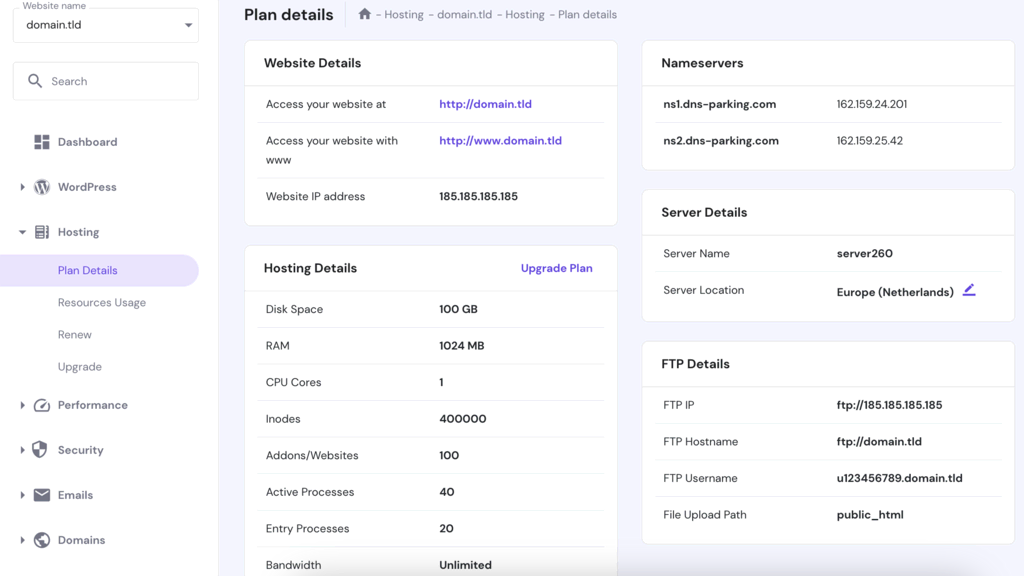
Both hosting providers offer tools for seamless site migration. Hostinger excels with its free automatic website migration service, which promises no downtime. This feature allows users to migrate their websites effortlessly with minimal technical involvement. DreamHost also provides a migration dashboard that guides users through the process after scanning the site. While both services are efficient, Hostinger’s automated and free migration makes it the more appealing option for those looking to switch hosts without additional costs or complications.
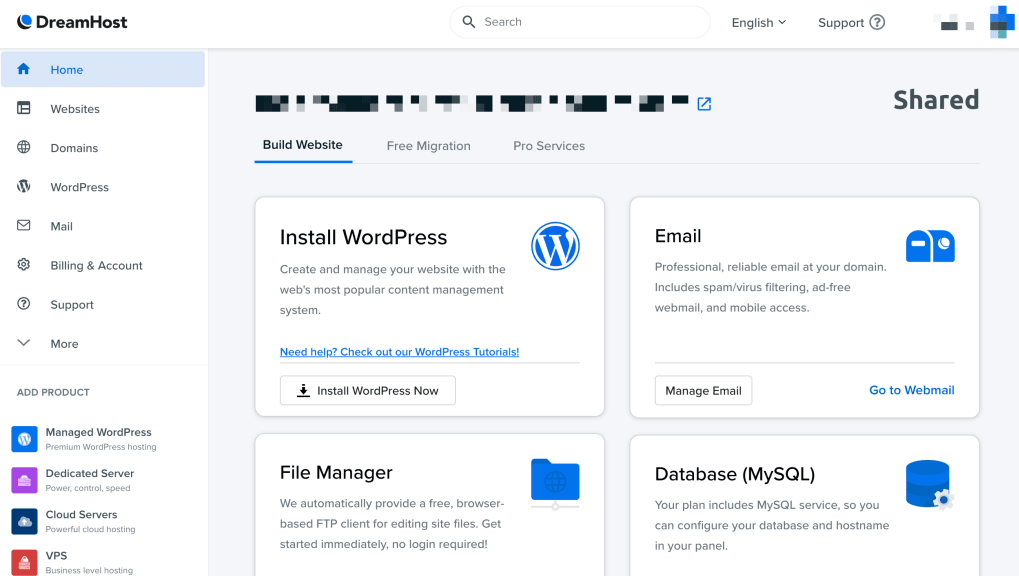
When evaluating the help center resources, Hostinger offers a comprehensive support system that includes 24/7 multilingual support via live chat and email, a vast collection of tutorials, and video content through the Hostinger Academy. DreamHost also provides 24/7 customer support via chat and email, backed by a searchable knowledge base and extensive WordPress guides. Both providers offer valuable resources for problem-solving and skill development, but Hostinger stands out due to its multilingual support and wide array of tutorial formats.
User management
accessibility.
Score Components:
- Role customization (40%): Flexibility in creating and defining user roles and
permissions. - Ease of management (30%): User interface and tools for managing users.
- Access control (20%): Effectiveness of access control measures for different user
levels. - Scalability (10%): Ability to manage a growing number of users efficiently.
 8.2
8.2
 8.1
8.1
🏆 Winner: Hostinger: A comprehensive user management system for streamlined client onboarding and oversight.
When comparing Hostinger and DreamHost in terms of user roles, permissions, and accessibility, Hostinger stands out with its hPanel interface allowing for easy client onboarding, centralized service management, and efficient role assignments. Hostinger allows different access levels, ensuring specific permissions such as modification rights or purchasing capabilities while maintaining security. Conversely, DreamHost offers secure SFTP and SSH access, suitable for technical users who need detailed control over their server environment. However, it lacks the intuitive user role customization seen in Hostinger, which provides structured roles ideal for resellers and managed service providers.
In terms of user interfaces and tools for managing users, Hostinger’s hPanel offers a clean, intuitive interface that simplifies managing and granting access, checking current users, and revoking permissions. Tools like centralized service management make it easy to monitor and control client activities, enhancing user experience. DreamHost, with its custom-built control panel, provides extensive management capabilities, including domain, email, and FTP & SSH management. Its interface is also user-friendly but leans towards more technical users who require advanced management options like SVN repositories and crontab access.
Regarding the effectiveness of access control measures, Hostinger provides a secure yet flexible approach by clearly defining what users with granted access can and cannot do. This structure aids in managing a growing number of users without compromising security. Hostinger’s centralized control within hPanel makes it easier to scale user management as clients grow. DreamHost, with its focus on secure user logins via SFTP/SSH and advanced features like password-protected directories and access to raw log files, also ensures high security. However, its model may require more technical knowledge, which might not be as scalable for non-technical clients.
Hostinger User Roles Table:
| Role | Description | Access Highlights |
|---|---|---|
| Manage services | Modify files and websites, manage VPS, and change other hosting settings. | Can modify hosting-related settings but cannot make purchases or add other users. |
| Manage services and make purchases | Includes all “Manage services” permissions plus the ability to purchase new hosting plans or domains. | Can manage services and also make purchases, but cannot manage payments or profile information. |
Customer support
hosting provider.
Score Components:
- Support communication channels (30%): Measures the variety of customer support types
provided (live chat, chatbot, email, phone, etc.) - Availability (20%): Assesses the availability hours for each channel, including 24/7
support options. - Technical support quality (30%): Assesses whether the provider offers comprehensive
technical support, including hardware upgrades (e.g., HDD to SSD), software installations, and web
server configuration changes. - Enterprise support (20%): Checks if there are dedicated or priority support services
for enterprise-level customers.
 8.3
8.3
 8.3
8.3
🏆 Winner Hostinger: Delivers a well-rounded customer service experience with multilingual support and fast response times.
 |
 |
|
|---|---|---|
Phone Support |
No |
No |
Live Chat Support |
Yes |
Yes |
Chatbot |
No |
No |
Email/Ticket Support |
Yes |
Yes |
Enterprise Support (Dedicated Agent, Priority Support) |
Yes |
No |
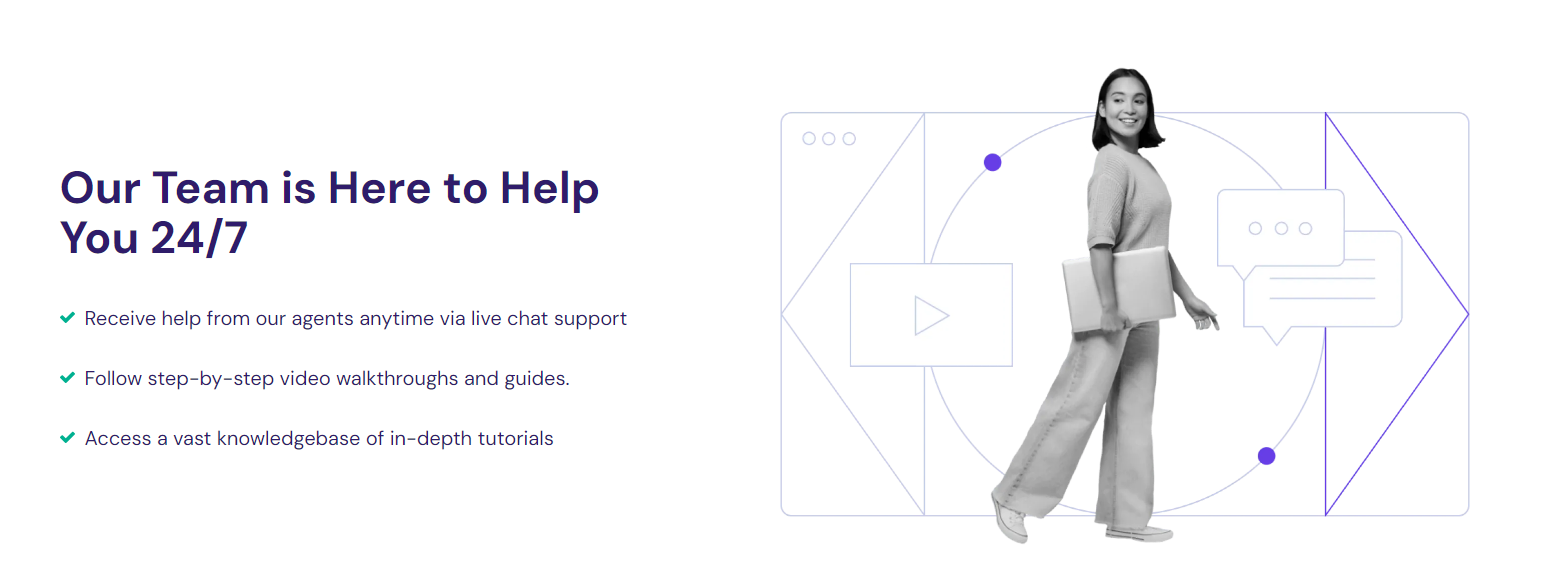
Hostinger and DreamHost both offer 24/7 live chat and email/ticket support, ensuring constant availability to assist their users. Hostinger stands out with their multilingual support in over ten languages, alongside a comprehensive knowledge base and video tutorials through Hostinger Academy. They also offer priority support for certain plans, providing an additional layer of customer service for their clients.
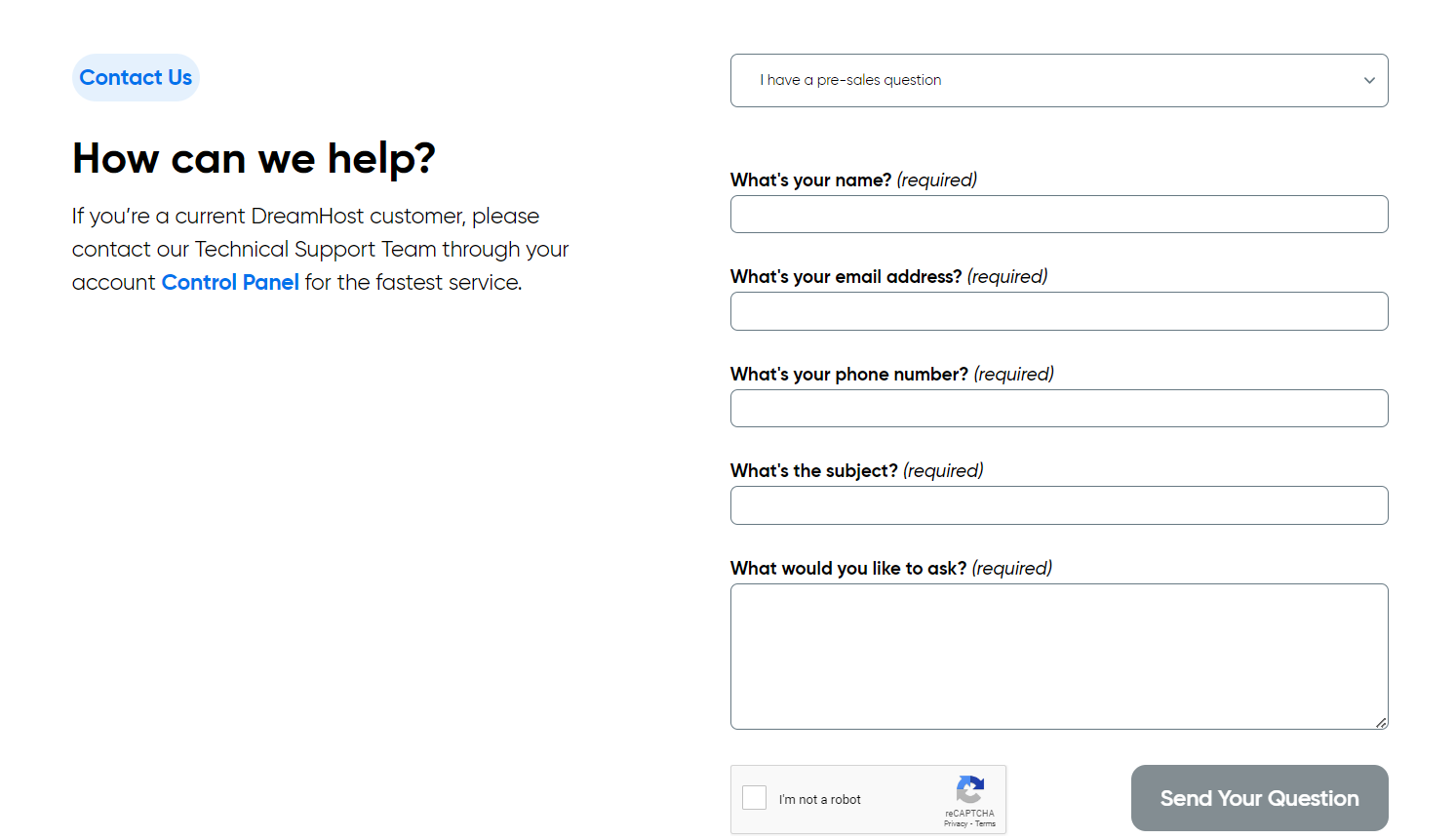
DreamHost offers a 97-day money-back guarantee on shared hosting and quick response times for live chat and emails. However, their phone support is limited to a callback service available for an extra fee, and they only support two languages, English and Spanish. DreamHost provides a thorough knowledge base but their discussion forums were discontinued in 2022, limiting community interaction.
User feedback
Hostinger receives high praise for its user-friendly interface, competitive pricing, and robust performance. Customers appreciate the wide range of features, including seamless website migration, the intuitive hPanel, and excellent uptime. The standout feature, consistently mentioned across reviews, is the exceptional and responsive customer support available 24/7 via live chat, although some users express a desire for phone support. On the downside, a few customers report issues with renewal pricing, occasional slow support response times, and the limitations of the lower-tier plans.
DreamHost is a well-regarded hosting provider praised for its reliability, affordable pricing, user-friendly interface, and excellent performance. Users especially appreciate the responsive customer support, the easy navigation of the web portal, and a variety of hosting options suitable for different needs. However, common criticisms include the lack of phone support, occasional slow response times from customer service, and some challenges related to advanced functionalities and site migrations. While the majority of users report positive experiences, a few have faced significant issues with downtime and customer service, impacting their overall satisfaction.
FAQ
Which platform is better suited for hosting WordPress websites?
Both Hostinger and DreamHost are well-suited for hosting WordPress websites, offering comprehensive WordPress hosting services with specialized tools. Hostinger provides robust features like free domains, SSL, and many customization options, while DreamHost offers managed WordPress plans with unmetered bandwidth and storage. Ultimately, both platforms are effectively tied in this category.
Which hosting service offers better security features?
Hostinger offers a comprehensive security suite, including 24/7 server monitoring, advanced security modules, and extensive malware protection with both anti-malware endpoints and a malware scanner. DreamHost also includes essential security features like mod_security and DreamShield for malware scanning but lacks the more advanced and continuous monitoring seen with Hostinger. Therefore, Hostinger provides better overall security features.
Which hosting service offers more scalability options for growing websites?
Hostinger offers elastic scalability with both automatic and manual upgrade options, making it easy to handle traffic spikes and growth, particularly with their cloud plans. DreamHost provides more traditional scaling methods requiring plan upgrades to accommodate growth, with detailed resources and dedicated servers. However, Hostinger’s flexibility in scaling makes it a better option for growing websites.
Which service is more suitable for hosting a high-traffic website?
DreamHost is generally more suitable for high-traffic websites due to its scalable solutions with dedicated and managed hosting options. Their extensive VPS and dedicated hosting plans offer robust resources to handle significant traffic volumes. Hostinger also provides good scalability but tends to be better for small to medium-sized sites due to the absence of dedicated hosting options.
What are the major differences in pricing and value between Hostinger and DreamHost?
Hostinger offers more competitive pricing with extensive features like free domains, SSL, and email across many plans, starting at less than $1. DreamHost excels in VPS and dedicated hosting but has higher pricing in managed WordPress and VPS hosting, justified by specialized support and priority handling. Overall, Hostinger provides excellent value for money, especially with its lower entry-level plans.
The making of this blog
We followed a clear, step-by-step process to write and research this article.









